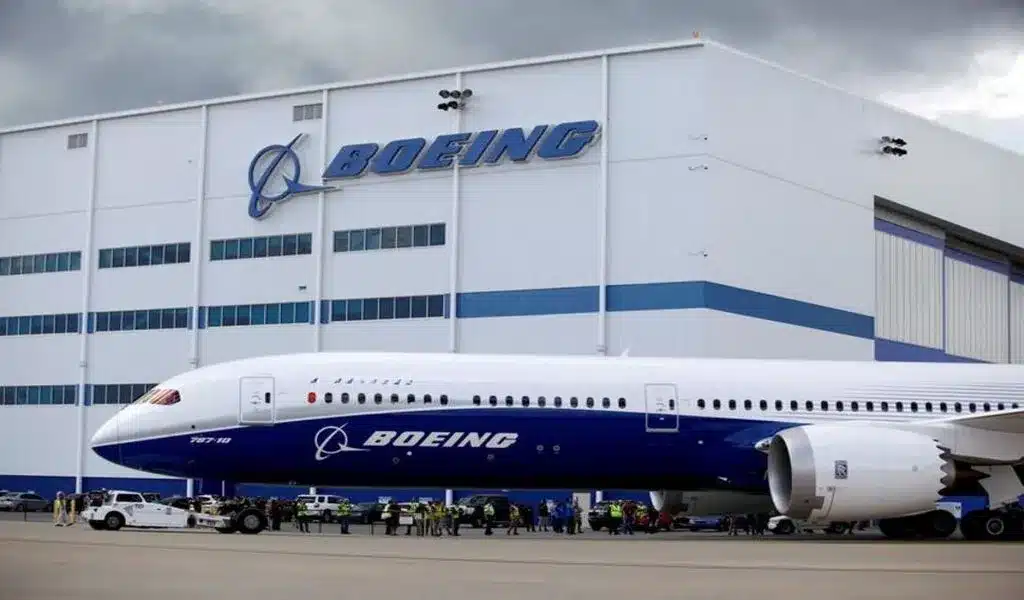Business
What Boeing’s Massive Financial Crisis Means For You

Boeing’s finances are a multibillion-dollar concern for the firm, its employees, suppliers, and airline customers. The good news is that they’re unlikely to have a significant impact on the typical American.
After 33,000 International Association of Machinists members went on strike against the corporation a month ago, Boeing will be unable to deliver all of its jets as planned. This will affect airlines and may have little influence on the quantity of available seats, particularly on domestic flights within the United States.
Fewer seats may compel airlines to increase fares. However, fares are currently falling due to excess capacity in the business and insufficient demand for flights. Many of the planes that were not delivered were most likely intended to replace older, less efficient planes.
What Boeing’s Massive Financial Crisis Means For You
So the impact will not impair your capacity to fly. The planes held by airlines have already been sold. Just like no one took your Chevy away from you during the automakers’ strike last year, Boeing jets in operation will remain in service.
However, Boeing’s financial woes, which began long before the strike, could have a negative impact on the US economy in general.
Boeing’s cash crunch
Boeing has been losing money for more than five years, ever since two disastrous 737 Max crashes in late 2018 and early 2019 killed 346 people and forced a 20-month grounding of the company’s best-selling airliner.
Since then, Boeing has posted core operating losses totaling more than $33 billion, with no end in sight. According to credit rating agency Standard & Poor’s, the strike began on September 13 and is causing the corporation to lose $1 billion every month. The issue is that the 737 Max’s production halt has cut off the company’s most vital source of funding, which derives the majority of its revenue from aircraft sales at the time of delivery.
Boeing plans to raise up to $25 billion to weather the current storm through increased borrowing, stock sales, and debt issuance. In addition, it intends to eliminate 10% of its global workforce, or approximately 17,000 out of 171,000 people, in order to save money. The layoffs will harm those employees, as well as the 33,000 strikers who will get a percentage of their normal wage in the form of strike compensation from the union.
Hit to the economy
Boeing’s financial problems are harmful to the US economy. It is the nation’s biggest exporter. And, more immediately, businesses in communities where laid-off Boeing employees and strikers dwell, primarily in Washington state, may face challenges when those people cut back on spending. The strike’s influence on suppliers, on the other hand, will cause financial issues to expand beyond Boeing. Boeing has 10,000 suppliers throughout all 50 states. It estimates that its annual contribution to the American economy is $79 billion, which supports 1.6 million employment directly and indirectly.
What Boeing’s Massive Financial Crisis Means For You
Boeing’s credit rating is at risk of being reduced to junk bond status, which would exacerbate its financial problems by increasing borrowing costs. Junk bond status indicates a heightened risk of default and maybe insolvency. However, just because it is forced to file for bankruptcy does not mean it will go out of business. It simply means that Boeing would use the bankruptcy procedure to discharge some of its unsustainable debt and other obligations. Numerous profitable corporations, like General Motors and the majority of the nation’s airlines, have declared bankruptcy and then reported record profits.
And Boeing is unlikely to be put out of business by the current financial crisis. Boeing and its European rival Airbus are practically the only businesses that manufacture full-size jets for the worldwide airline sector. Its status as part of a duopoly virtually guarantees its longevity.
SOURCE | CNN